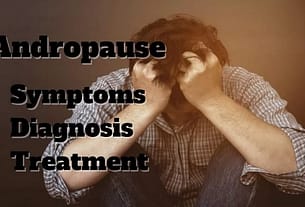What is exam or test anxiety?
Exam or test anxiety is defined as a common and often normal stress reaction experienced before, during and sometimes after exams. Exam anxiety presents an issue when it is intense, continues over time and impedes academic performance.
In other words, a certain level of exam or test anxiety is actually a common and often normal response to sitting exams. Some degree of nervous energy and tension is generally required to motivate us to study for, and complete exams and perform well – it is important to remember exam anxiety is not all bad.
So, the short answer is that most people have a level of anxiety relating to exams that is normal, but this can become problematic when anxiety impedes our ability to attend, engage with or perform on exams due to its effects and symptoms.
Potential causes Of Exam Anxiety
There can be many reasons a person may develop high levels of anxiety in relation to exams. Sometimes pressures coming from the individual themselves (such as perfectionism), or even their family or friends can also contribute to the degree of anxiety experienced in regards to exams.
Exam anxiety may also intensify after a negative exam experience when confidence has been effected. A lack of preparation or study can also increase our sense of helplessness and stress.
As with any mental health issue – biology and our personality and our life experiences play a role. Some people tend to worry or may be more prone to developing exam anxiety but this does not mean it cannot be managed and improved with practice and support.
Is test anxiety a disorder?
Test anxiety is not recognized as a distinct condition in the Diagnostic and Statistical Manual of Mental Disorders (DSM-5-TR). However, it can sometimes occur as a manifestation of another anxiety disorder such as social anxiety disorder, generalized anxiety disorder, or specific phobia.
Symptoms of Test Anxiety
The symptoms of test anxiety can vary considerably and range from mild to severe. Some students experience only mild symptoms of test anxiety and are still able to do fairly well on exams. Other students are nearly incapacitated by their anxiety, performing dismally on tests or experiencing panic attacks before or during exams.
Physical Symptoms
Physical symptoms of test anxiety include sweating, shaking, rapid heartbeat, dry mouth, fainting, and nausea. Sometimes these symptoms might feel like a case of “butterflies” in the stomach, but they can also be more serious symptoms of physical illness such as nausea, diarrhoea, or vomiting.5

Cognitive and Behavioral Symptoms
Cognitive and behavioural symptoms can include avoiding situations that involve testing. This can involve skipping class or even dropping out of school. In other cases, people might use drugs or alcohol to cope with symptoms of anxiety.
Other cognitive symptoms include memory problems, difficulty concentrating, and negative self-talk.
Emotional Symptoms
Emotional symptoms of test anxiety can include depression, low self-esteem, anger, and a feeling of hopelessness. Fortunately, there are steps that students can take to alleviate these unpleasant and oftentimes harmful symptoms. By learning more about the possible causes of their test anxiety, students can begin to look for helpful solutions.
Symptoms
There are many symptoms which people may have when experiencing exam anxiety and these may occur before, during, and/or after exams. Below are some of the commonly reported symptoms.
Emotional
- Feeling nervous, unsettled or overwhelmed
- Feeling panic or experiencing panic attacks
- Feeling down or helpless
- Feeling a sense of shame or guilt.
Physical
- Increased heart rate
- Muscle tension throughout the body
- Nausea and/or digestive changes
- Fatigue without physical exertion
- Increased sweating
- Difficulty breathing or tightness in chest
- Loss of appetite or over-eating
- Light-headedness or feeling dizzy
- Sleep changes (over or under sleeping or disrupted sleep).
Cognitive
- Difficulties concentrating and/or paying attention
- Difficulties recalling or processing key information (going blank)
- Racing or disorganized thoughts
- Irrational or unhelpful thoughts
- Preoccupation with thoughts of failure or embarrassment
- Worrying about the time constraints or outcome of exam
- Comparison to others during testing situation
- Able to recall exam answers after exam is over.
Behavioural
- Pacing or acting restless (shaking leg, increased activity).
- Cramming or staying up the night before in the hope it will help improve your grades or reduce anxiety.
- Withdrawing from others or obsessing about study
- Procrastinating and avoiding cues relating to exams including study
- Making simple mistakes on exam despite knowing content
- Not attending exams
- Leaving the exam as soon as possible or before finishing
- Using alcohol or other substances to distract from stress/study.
What might help before an exam?

- Expect and accept that some level of anxiety will occur and that this is actually a normal part of the student experience.
- Be prepared: Check the location and time, be on time and ensure you bring what you need (e.g., several pencils and pens, calculator, ruler, etc.). Make a checklist if helpful.
- Exercise and eat food that is good for you and helps you stay nourished. Rest and avoid excessive caffeine as this can increase anxiety.
- Have fun – enjoying things and connecting with others can help reduce anxiety.
- Learn to identify your anxiety signs and acknowledge to yourself that you are feeling anxious (e.g., I’m feeling a little jittery. I guess I’m a bit nervous about the exam.”).
- Practice relaxation techniques and do things which calm you down (e.g., breathing, mindfulness, visualisation, uplifting music etc.).
- 7. Learn the material thoroughly by studying each day even if it’s only for a small amount of time so that you feel confident with the content.
- Talk to someone – someone know that you are feeling anxious such as a partner, friend or family member. You can also speak to a counsellor through UQ or externally if this feels more comfortable.
- Set boundaries with yourself. Tell yourself, “STOP” when you notice negative or anxious thinking, take a deep breath and refocus your attention on something in your environment.
- Avoid thinking about past poor performances on exams and focus on managing the present as well as you can as this is what is within your control.
- Generate positive and encouraging self-talk/affirmations and be your own best friend/coach (e.g., “You can do this” “You know this material”).
- Get perspective: remind yourself that this is only one of many assessments that you will complete over the course of your career and that it is only a short period of time to get through in the grand scheme of your career/life.
- Develop good general study skills (a learning adviser can help with this).
- Discuss course content with friends, arrange a study group or find a tutor to consolidate learning.
- Ask the lecturer/tutor what type of questions will be on the exam and what topics will be emphasized if you feel very unsure. And review past exams to practice or get a sense of the format/questions.
- Focus on calming down on the way to the exam rather than trying to cram in last minute study as this will not be effective when stress is high.
- Reduce the amount of talking with classmates before exams if you feel that it is unhelpful or actually increases your anxiety.
- Set yourself some rewards for completing the exam – e.g. having lunch or seeing a friend or classmate afterwards, seeing a movie etc. so that you have something to look forward to.
What can help during the exam?
- Take a few moments for yourself to try and calm down and accept the presence of some anxiety. Try a breathing or mindfulness exercise and encourage yourself (e.g. “I can do this, I know the content”).
- Acknowledge your anxiety and allow it to just be there (e.g., “I notice that I feel a bit nervous but that’s ok – my body is just telling me that this is important to me and I’m just going to try my best”).
- Try to make yourself as comfortable as you can (in your chair, on the desk etc.).
- Remember that most people find exams somewhat anxiety-provoking and understand that they can be uncomfortable. Remember the people in your life who are encouraging you during this exam.

- Read the instructions and questions carefully. Plan and consider your thoughts for essays and ensure that you re-read questions before answering as missing a word can make a difference in how you answer.
- Visualise yourself staying calm and doing well and return to relaxation strategies throughout the exam if your anxiety fluctuates.
- If permitted, write down any formulas or important points to remember on the first page to refer back to during the exam while it is fresh in your mind.
- Organise and budget your time so you aren’t under as much pressure and you don’t run out of time. Allow enough time to try each question and start with the questions you know.
- Disregard how slow or fast others complete or hand in their exams. Focus on your own timing and own exam as speed is not part of the marking criteria.
- Give an answer for every question even if you aren’t sure (providing there are no penalties for incorrect responses). If you try each question you may receive part marks which can make a big difference.
- If you go “blank” or feel overwhelmed try another question. Remember that putting any answer is usually better than leaving questions blank.
- Remind yourself that the exam is just one part of the course assessment and that it goes for a short amount of time in the grand scheme of things.
-
Ways to try and relax after the exam
- Continue to recognise and accept any lingering anxiety as your nervous system begins to relax (often this will take at least 20 mins after high stress).
- Recognise your effort and accept that the result is now out of your control.
- Reward yourself! Do something to reward yourself for your hard work and completing the exam even if it something small.
- Complete a relaxing activity or engage in something that you know might calm you down such as talking to a friend, meditating, exercising or having quiet time to yourself.
- Dwell on the questions you nailed and take a constructive view of the ones which may have proven more challenging as ongoing learning areas.
- Review your exam performance and change your strategy if needed. You could attend a skills workshop from Student Services or book an appointment with a Learning Adviser.
- Seek clarification and support from lecturers or tutors regarding content if you are concerned so you can feel prepared for the next exam. Reflect on feedback about your exam performance and how you can use this information to continue to develop and integrate your knowledge and skills.
- Try to keep anxiety, performance and self-worth separate in your mind. Remember you’re your grades have nothing to do with your worth or who you are as a person.
- Seek support with anxiety management if needed for current or future potential anxiety with an external provider or UQ Student Services Counselling team.
- Remind yourself that some anxiety during exams is a normal experience of being a student and is manageable with the right help and planning.
-
See a professional counsellor, if necessary

-
Talk therapy (psychotherapy) with a psychologist or other mental health professional can help you work through feelings, thoughts and behaviours that cause or worsen anxiety. Ask if your school has counselling services or ask if your employer offers counselling through an employee assistance program.







